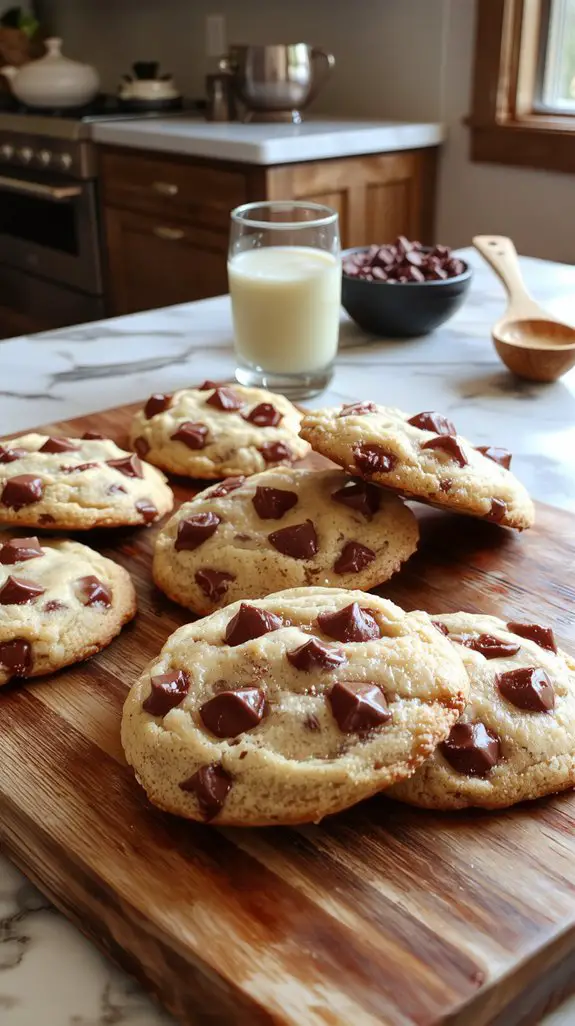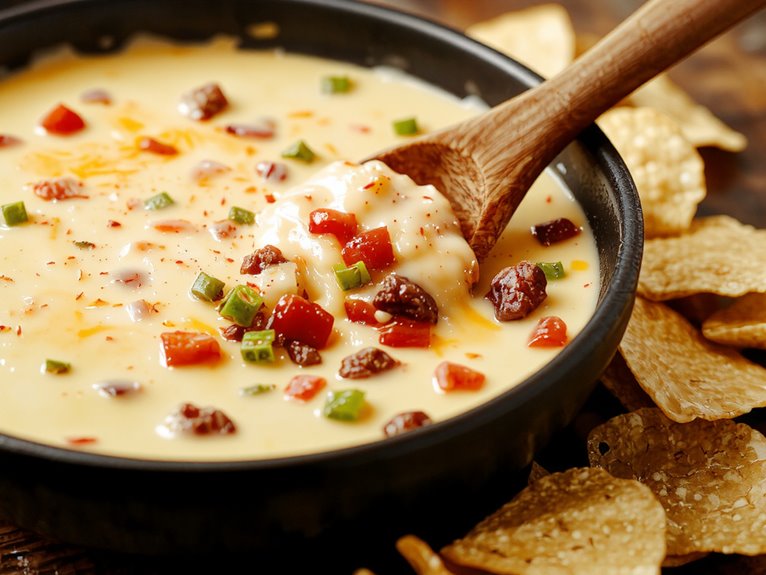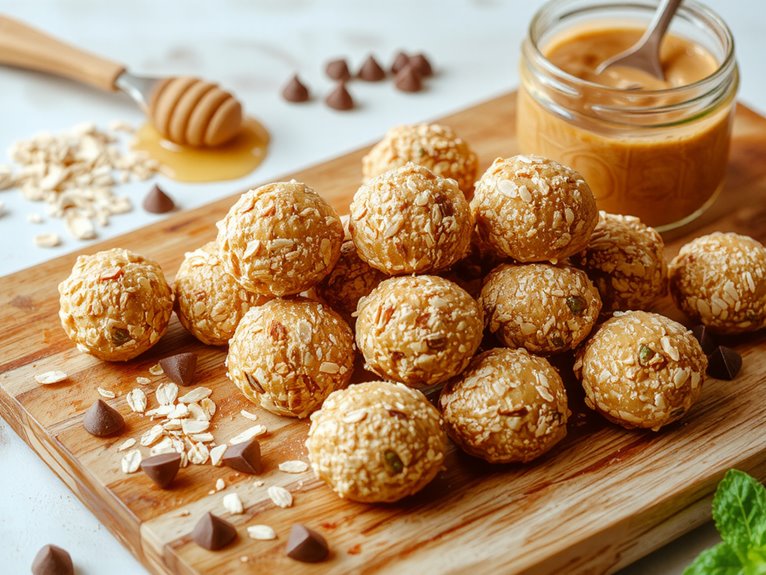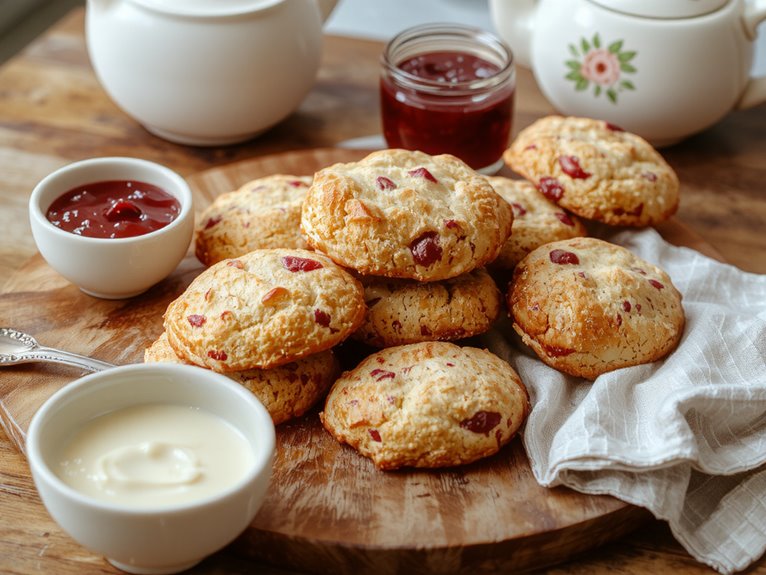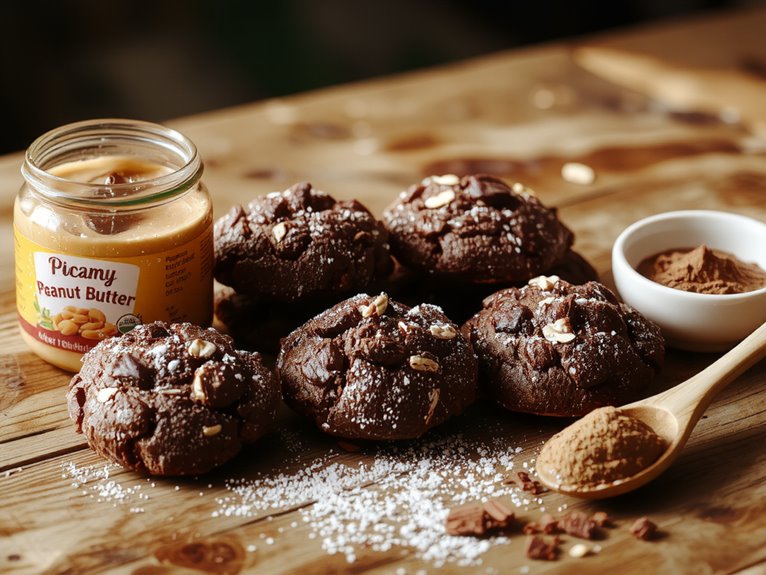Recipe
I can confidently say this is the chocolate chip cookie recipe you’ve been searching for—soft, chewy, and loaded with gooey chocolate in every bite. What makes it truly special? The perfect balance of brown sugar for richness and a pinch of sea salt to elevate the sweetness.
I’ve baked these countless times, and they’re always a hit—whether it’s for a cozy night in, a birthday party, or just because. The edges are golden and slightly crisp, while the center stays irresistibly tender.
Trust me, once you smell these cookies baking and take that first warm, melty bite, you’ll understand why this recipe is a keeper. Let’s get baking—you’re about to make magic happen!
Ingredients
When it comes to baking the perfect chocolate chip cookies, the ingredients you choose can make or break the final result. Opt for high-quality components to guarantee your cookies are rich, chewy, and bursting with flavor. Here’s a breakdown of what you’ll need and why each ingredient matters:
- Unsalted Butter: Always use unsalted butter to control the saltiness. Room temperature butter creams better with sugar, giving your cookies that classic, soft texture.
- Granulated Sugar: Adds sweetness and helps create a slightly crisp edge.
- Brown Sugar: The secret to chewiness. Its moisture content keeps the cookies soft, and its molasses flavor adds depth.
- Eggs: Use large eggs at room temperature. They bind the ingredients and add moisture.
- Vanilla Extract: Pure vanilla extract is non-negotiable for that warm, rich flavor. Avoid imitation—it’s worth the splurge.
- All-Purpose Flour: The backbone of your cookie. Avoid over-measuring to prevent dryness—fluff the flour before scooping.
- Baking Soda: Helps the cookies rise and spread evenly. Make sure it’s fresh for the best results.
- Salt: Enhances all the flavors. If you only have salted butter, reduce the added salt slightly.
- Chocolate Chips: Use semi-sweet for a balanced sweetness, but feel free to mix in dark or milk chocolate chips for variety. Chocolate chunks also work wonders for gooey pockets.
Optional add-ins? Try a pinch of espresso powder to deepen the chocolate flavor or a handful of toasted nuts for crunch.
Don’t stress if you’re missing something—most ingredients have swaps, but stick to high-quality basics for cookies that truly stand out.
How to Make the Best Martha’s Cookie Recipe

- Preheat your oven to 375°F (190°C). This guarantees your cookies bake evenly from the moment they hit the oven. Use an oven thermometer if you’re unsure about your oven’s accuracy.
- Line your baking sheets with parchment paper. This prevents sticking and makes cleanup a breeze. If you don’t have parchment, lightly grease the sheets with butter or cooking spray.
- Cream together the softened butter and sugars until light and fluffy. This step aerates the dough, giving your cookies a tender texture. Make sure your butter is at room temperature—it should indent slightly when pressed but not be melted.
- Beat in the eggs one at a time, followed by the vanilla extract. Adding eggs one by one guarantees they’re fully incorporated, and the vanilla adds that classic cookie flavor.
- Whisk together the dry ingredients (flour, baking soda, and salt) in a separate bowl. This guarantees even distribution of leavening agents and salt, preventing clumps in your dough.
- Gradually mix the dry ingredients into the wet ingredients. Mix just until combined—overmixing can lead to dense cookies. A few streaks of flour are okay; they’ll disappear as you add the chocolate chips.
- Fold in the chocolate chips. Use a spatula to gently mix them in evenly. For extra indulgence, reserve a handful of chips to press on top of the cookie dough balls before baking.
- Scoop the dough onto the prepared baking sheets. Use a cookie scoop or tablespoon for consistent-sized cookies. Leave about 2 inches between each to allow for spreading.
- Bake for 9–11 minutes, or until the edges are golden but the centers are still soft. The cookies will firm up as they cool. For chewier cookies, slightly underbake them; for crispier ones, bake a minute longer.
- Let the cookies cool on the baking sheet for 5 minutes before transferring to a wire rack. This prevents them from breaking apart. Don’t skip this step—it’s essential for the perfect texture.
- Enjoy warm or let them cool completely before storing. Store in an airtight container at room temperature for up to a week, or freeze for longer storage. Warm them briefly in the oven or microwave for that just-baked feel.
Nutrition
Chocolate chip cookies offer a delightful balance of sweetness and indulgence. Here’s a breakdown of their nutritional values per serving.
Calories: 150
Total Fat: 8g
Saturated Fat: 5g
Cholesterol: 20mg
Sodium: 85mg
Total Carbohydrates: 18g
Dietary Fiber: 0.5g
Sugars: 12g
Protein: 2g
Chef Tips
For the best results with this chocolate chip cookie recipe, I always start with room-temperature butter; it creams more evenly with the sugar, giving the cookies a better texture.
I also chill the dough for 30 minutes to prevent excessive spreading.
Using a mix of brown and white sugar adds depth of flavor.
Finally, I underbake slightly—they’ll firm up as they cool, leaving them chewy and soft.
Frequently Asked Questions
Can I Freeze the Cookie Dough?
Yes, I can freeze cookie dough. I scoop it into portions, place them on a baking sheet to freeze solid, then transfer to a bag or container. It keeps for months, and I bake it straight from frozen.
How Do I Make Cookies Softer?
I’ll make sure my cookies are softer by slightly underbaking them and letting them cool on the baking sheet. I also add a bit more brown sugar and use cake flour instead of all-purpose flour.
Can I Use Margarine Instead of Butter?
Yes, I’ll use margarine instead of butter, but I’ll choose a high-quality one with at least 80% fat for better results. Margarine has more water, so I’ll expect my cookies to spread more and be softer.
Why Do My Cookies Spread Too Much?
I think your cookies spread too much because your butter might be too soft, or you’re using too much sugar. I’d chill the dough before baking and check my measurements to keep them from flattening out.
How Long Do Cookies Stay Fresh?
I’ve found cookies stay fresh for about 3–5 days if I store ’em airtight. If I need ’em to last longer, I’ll toss ’em in the freezer; they’ll stay good for 2–3 months that way.

